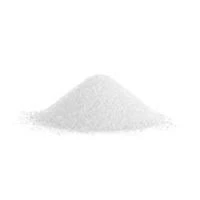
isopropyl alcohol 50
Understanding Isopropyl Alcohol (50%) Uses, Benefits, and Safety
Isopropyl alcohol, commonly known as isopropanol or rubbing alcohol, is a colorless, flammable chemical compound with a distinctive odor. It is widely used in various industries and household applications. When we refer to isopropyl alcohol 50%, we refer to a solution containing 50% isopropyl alcohol and 50% water — a concentration that is effective for several purposes while being safer than more concentrated forms.
Chemical Properties and Composition
Isopropyl alcohol (C3H8O) is a type of alcohol classified under the category of secondary alcohols. The 50% solution typically consists of half isopropyl alcohol and half distilled water by volume. This dilution is crucial because while pure isopropyl alcohol is a potent disinfectant and cleaning agent, higher concentrations (like 70% or above) can evaporate quickly and may not have the same level of effectiveness against bacteria and viruses in some applications.
Uses in Disinfection and Cleaning
One of the primary uses of isopropyl alcohol, particularly at a 50% concentration, is as a disinfectant. It can effectively kill a broad spectrum of microorganisms, including bacteria and fungi. In healthcare settings, it is often used to sterilize equipment and surfaces, although higher concentrations (usually between 60% and 90%) are preferred for critical disinfecting needs.
In a household setting, 50% isopropyl alcohol can be used for various cleaning tasks, including
1. Surface Cleaning It is effective in cleaning countertops, bathroom fixtures, and devices such as phones and tablets. It can remove grease and grime while also disinfecting surfaces. 2. Deodorizing The alcohol acts to neutralize odors, making it useful for freshening up areas that may smell musty or stale.
3. Removing Stains Isopropyl alcohol can help dissolve certain types of stains, making it an excellent choice for removing ink, adhesives, and other blemishes from fabrics and surfaces.
4. Cosmetic Uses It is commonly used to disinfect beauty tools, such as scissors, tweezers, and makeup brushes, ensuring hygiene in cosmetic applications.
isopropyl alcohol 50

Benefits of a 50% Concentration
The 50% solution of isopropyl alcohol has distinct advantages. Compared to higher concentrations, this diluted form evaporates more slowly, allowing for a longer contact time with surfaces. This extended interaction time enhances its ability to kill harmful pathogens effectively. Additionally, 50% isopropyl alcohol is less harsh on the skin than its higher-concentration counterparts, making it suitable for applications where skin contact is possible.
Safety Considerations
While isopropyl alcohol is effective for many cleaning and disinfecting tasks, safety precautions should be observed. Here are some key safety tips
- Flammability Isopropyl alcohol is highly flammable. Keep it away from open flames and high-heat sources. Always store it in a cool, dry place in a tightly sealed container.
- Ventilation Use isopropyl alcohol in well-ventilated areas to minimize inhalation of vapors, which may cause irritation to the respiratory system.
- Skin Contact Prolonged contact with the skin can cause irritation. It is advisable to wear gloves if using isopropyl alcohol frequently or in large quantities.
- First Aid If ingested or if it comes in contact with eyes, seek medical attention immediately. Flush the eyes with water for 15 minutes and never induce vomiting.
Conclusion
Isopropyl alcohol at 50% concentration is a versatile and effective solution for a variety of applications, from household cleaning to professional disinfection. Its balance between efficacy and safety makes it a popular choice among consumers and professionals alike. By observing proper safety measures, individuals can harness the many benefits of isopropyl alcohol while minimizing risks. As we continue to prioritize hygiene in our daily lives, understanding the appropriate use of products like isopropyl alcohol is crucial for maintaining a clean and safe environment.
-
Pure Sodium Dichloroisocyanurate Dihydrate | Powerful DisinfectantNewsAug.29,2025
-
Industrial Chemicals: Quality & Purity for Every IndustryNewsAug.28,2025
-
Nitrile Rubber Honoring Strict Production StandardsNewsAug.22,2025
-
Aspartame Ingredients Honoring Food Safety ValuesNewsAug.22,2025
-
Fertilizer for Balanced Plant NutritionNewsAug.22,2025
-
Cyanide Gold Processing with High Purity AdditivesNewsAug.22,2025
-
Formic Acid in Textile Dyeing ApplicationsNewsAug.22,2025
Hebei Tenger Chemical Technology Co., Ltd. focuses on the chemical industry and is committed to the export service of chemical raw materials.
-

view more DiethanolisopropanolamineIn the ever-growing field of chemical solutions, diethanolisopropanolamine (DEIPA) stands out as a versatile and important compound. Due to its unique chemical structure and properties, DEIPA is of interest to various industries including construction, personal care, and agriculture. -

view more TriisopropanolamineTriisopropanolamine (TIPA) alkanol amine substance, is a kind of alcohol amine compound with amino and alcohol hydroxyl, and because of its molecules contains both amino and hydroxyl. -

view more Tetramethyl Thiuram DisulfideTetramethyl thiuram disulfide, also known as TMTD, is a white to light-yellow powder with a distinct sulfur-like odor. It is soluble in organic solvents such as benzene, acetone, and ethyl acetate, making it highly versatile for use in different formulations. TMTD is known for its excellent vulcanization acceleration properties, which makes it a key ingredient in the production of rubber products. Additionally, it acts as an effective fungicide and bactericide, making it valuable in agricultural applications. Its high purity and stability ensure consistent performance, making it a preferred choice for manufacturers across various industries.





